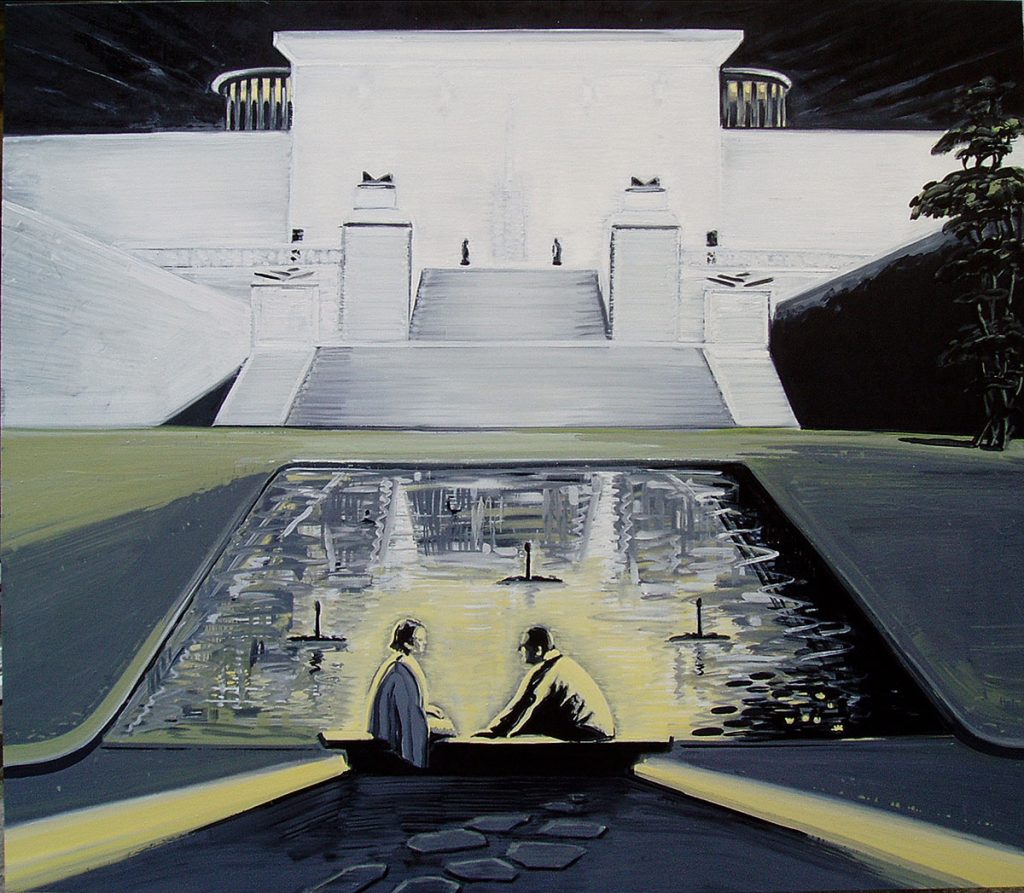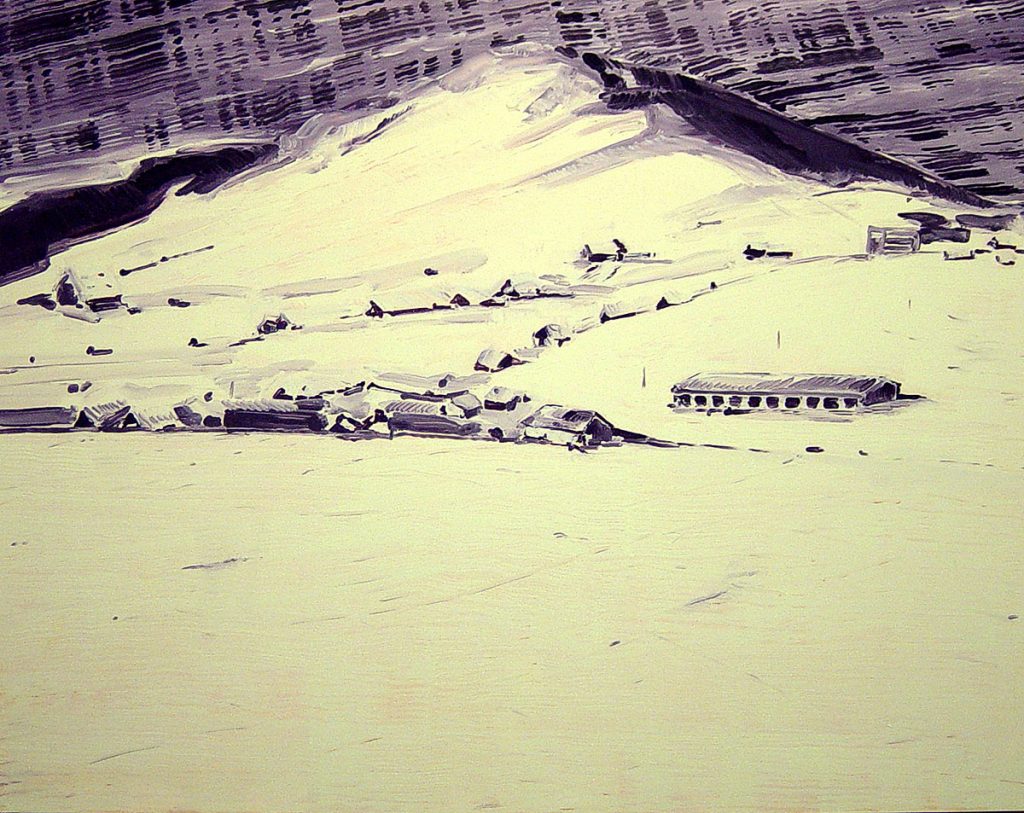Visa de censure (Lost horizon)

Visa de censure- Lost Horizon, 2005, oil on canvas, 162 x 181 cm.
Visa de censure (Lost horizon) presents the active power of this dream-like leaning: an ideal palace of disturbing size (fascist architecture), whose monumental frontality reassures and threatens like in a dream. On the edge of an ornamental pond a couple is discussing: the luminous halo that isolates them reminds us of a movie set, the agitated waves show the brush work. A primitive scene that has been tampered with, a space for fantasy, in more than one respect: in the biggest pre-war Hollywood success (Lost Horizon) whose projection in the Reich was however forbidden by the Nazis, Shangri-La is the imaginary realm of the ‘good despot’. From the imagery and the desire invested in it, there is unexpected knowledge to be extracted, of which painting, if it knows how to undo the image, is the experience.”
Patricia Falguières, “Childhood and History”, in Adam Adach, Musée national Message Biblique Marc Chagall, Nice, 2005

Mazurie, 2002, oil on wood panel, 146 x 114 cm.
